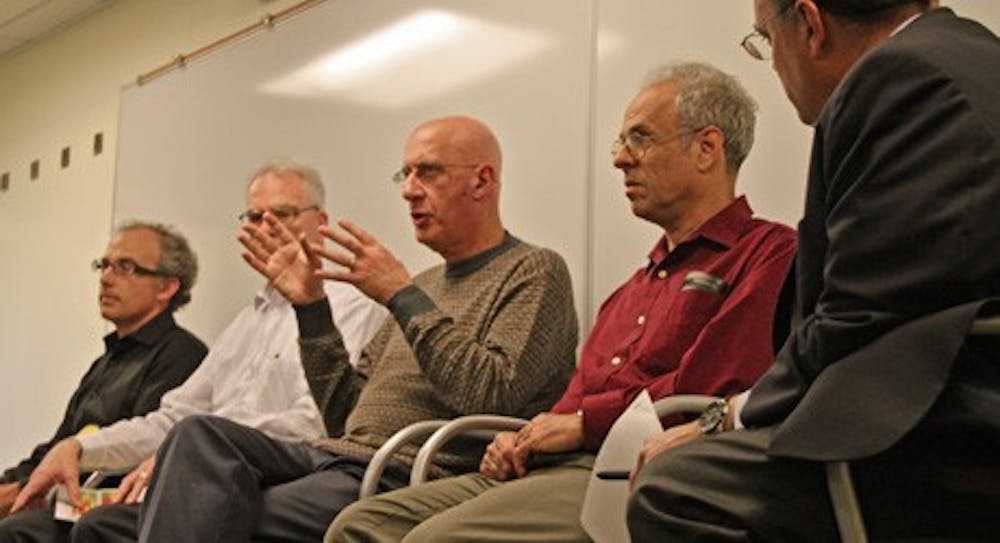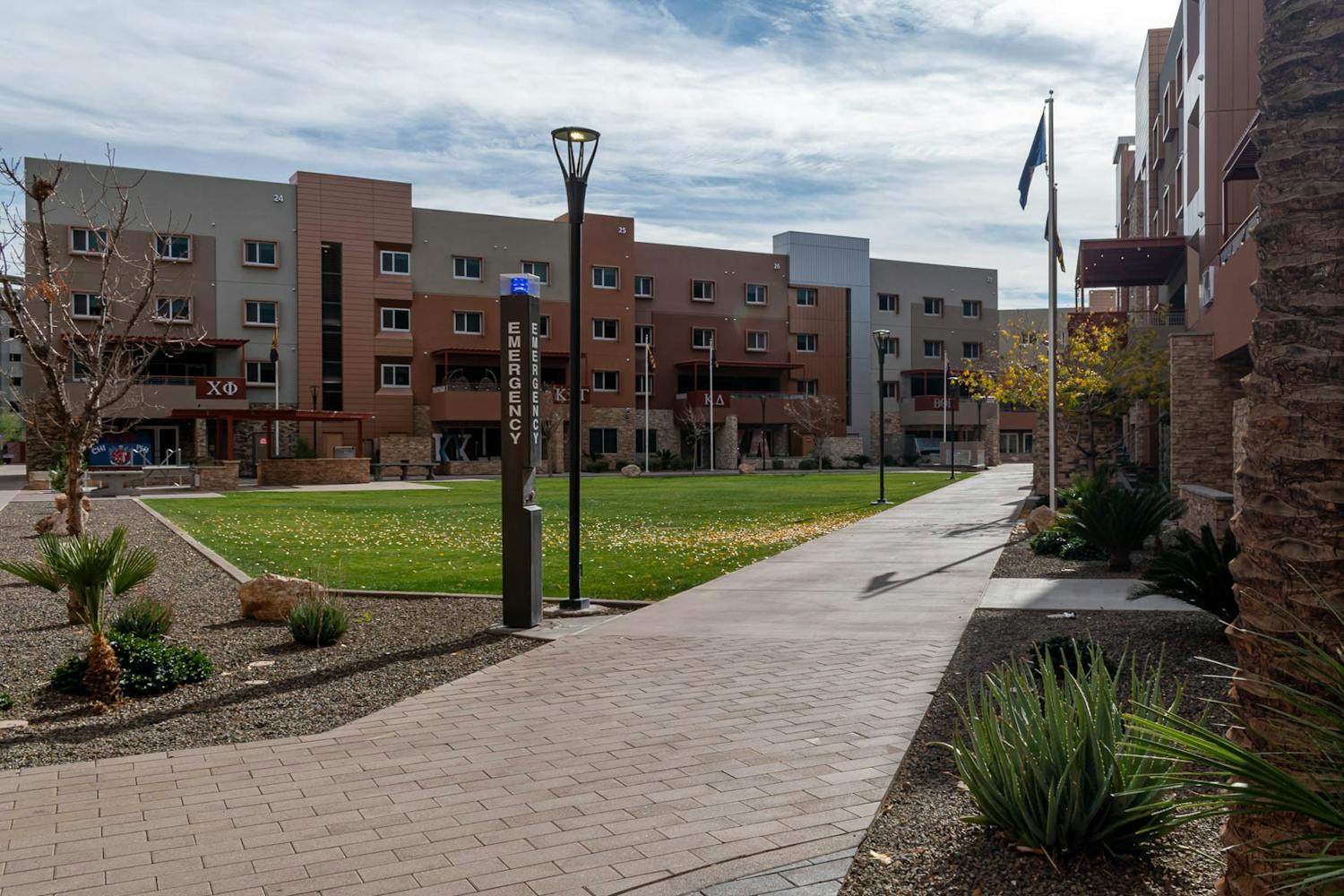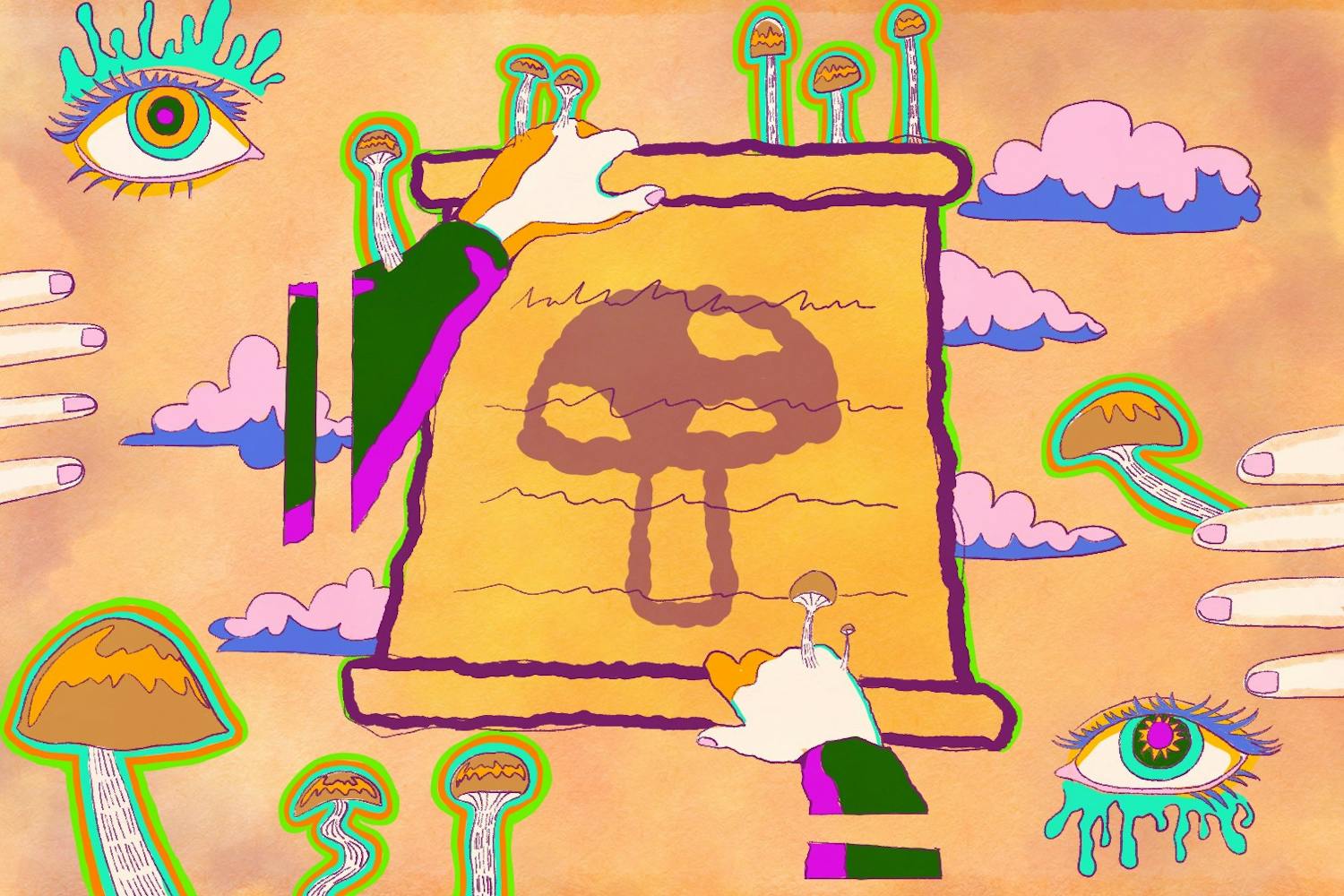ASU experts predict that Japan’s strongly built, prepared infrastructure will make the country’s recovery better than many might expect.
ASU’s Global Institute of Sustainability hosted a panel discussion called “Case Critical: Fallout from the Disasters in Japan,” which allowed four ASU faculty experts to comment on the recent earthquake and tsunami in Japan and the ongoing nuclear scare. The panel attracted more than 60 attendees.
Ramon Arrowsmith, a geology professor, said although it is a tragedy and it was a rare event, in the past 60 years there have been six other major earthquakes in Japan. Because of this, the country’s infrastructure is prepared for an event or disaster.
“In the Japanese infrastructure, things were pretty well-built; therefore, there was relatively modest damage with ground motion,” Arrowsmith said. “It would have been tragically worse if it were in any other place in the Pacific Rim.”
Arrowsmith said the country was fortunate that the disasters did not happen in major cities such as Tokyo, and the damages outside of the cities hit were only moderately affected by ground motion.
A majority of media coverage around the world has gauged viewers to focus on the events of the tsunami, but the panel emphasized the initial destruction of the earthquake.
These events have now left approximately 250,000 people dead or missing because of the earthquake or tsunami, said R.F. Shangraw, director of the Global Institute of Sustainability, which coordinated this discussion within less than two days of the earthquake and tsunami that hit March 10.
With more than 3,000 faculty members at the University, Shangraw said it’s vital to utilize the resources of expertise of ASU faculty to communicate information immediately with the student body so they can be knowledgeable of worldly situations.
“From a sustainability viewpoint, [these disasters] really raise a lot of questions that are up for discussion like this, with the resilience of communities and renewable energy in Japan,” said Shangraw, who moderated the panel.
The panelists ranged in expertise from earthquake specialization, nuclear engineering, radiation health, safety, public policy, radiation and physics.
Shangraw designed the panel to address the range of issues that covered three main points of sustainability: the natural effects, the human health effects and the technology effects.
“The only thing that was missing was the cultural effect,” Shangraw said. “But, this is really the vision for me, instead of seeing [the disasters] on CNN, you can walk out of class and walk into a room and get your questions answered.”
The panel addressed the current scares of radiation coming from the Japan power plant and how Japan’s ecosystem will need to sustain itself with the use of the renewable energy from the aftermath of the disasters. It also answered questions about the possible after-effects on the U.S.
“What I really hope are results from this are … new ideas to come out of this discussion; and as a result from the immediate crisis, we will have long-term discussions and a panel — I hope that we can be solutions-oriented,” Shangraw said.
Some people are concerned about the possibility of radiation effects from Japan to the U.S.
Radioactive iodine emanating from a power plant in Japan is causing thyroid cancer in many people there, said Kenneth Mossman, life sciences professor and expert on radiation health and safety.
“The thyroid is the most vital organ for regulating metabolism, and intakes the iodine that has been emitted in the drinking water, farms and atmosphere,” Mossman said.
The panelists overall didn’t foresee any danger approaching the U.S. or potential for long-term radiation diseases.
“[The radiation] was much localized around the power plant. Worrying about it coming to the U.S. is a bit silly,” said physics professor Peter Rez.
Reach the reporter at ctetreau@asu.edu





